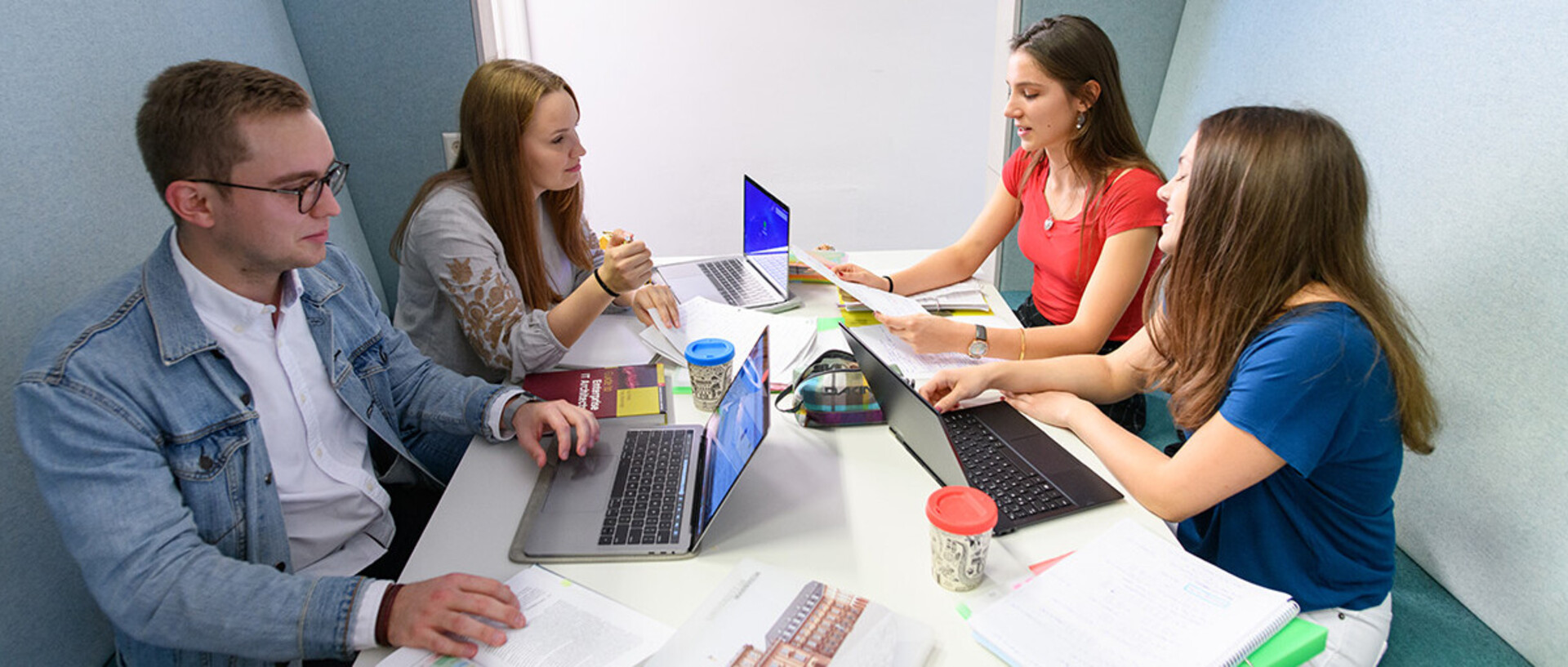Social Simulation Seminar (FSS 2020)
In this seminar, we study agent-based models and their applications in social science. Students will summarize current research papers in presentations and form groups to develop their own agent-based simulation models for parking facility management with NetLogo.
Organization
- Organized by Prof. Dr. Heiner Stuckenschmidt and Kilian Theil
- Slides of the first two sessions can be found here (PDF, 1 MB) and here (PDF, 347 kB)
- Available for up to 12 master or exceptional bachelor students
- First appointment: 02/
04/2020, 12:00–13:30 online via MS Teams
Goals
In this seminar, you will
- Learn about the foundations of agent-based modeling (ABM) for social simulations and how to implement it in NetLogo
- Review and summarize current research papers about social simulation
- Develop your own agent-based simulation model for parking facility management in NetLogo
Schedule
| Date | Time | Title | Room |
| 02/ | 12:00–13:30 | Agent-Based Modeling (ABM) for Social Simulations | online |
| 02/ | 12:00–13:30 | ABM in Netlogo | online |
| 07/ | 12:00–14:00 | Paper Presentations by Students | online |
| 02/ | 12:00–13:00 | Project Presentation by Students | online |
Requirements
- Basic programming skills in a language of your choice
- Good reading and presentation skills in English
- Proficiency in LaTeX
Evaluation
The grade consists of two parts:
- 50% are assigned for an individual presentation of a recent research paper
- 50% are given for a practical group project presenting an own simulation model implemented in NetLogo
The individual presentations will summarize a paper of your choice (see the list below) and have a duration of 15min + 5min for Q&A. For the practical project, students will form groups of 3 to 5 people and develop their own agent-based models for parking facility management in NetLogo. A selection of possible topics is provided below. The results of these projects will be evaluated in form of: another presentation (25min + 10min Q&A), the submitted code, and a short report written in LaTeX.
Papers for Presentations
- Baeza, A., & Janssen, M. A. (2018). Modeling the Decline of Labor-Sharing in the Semi-Desert Region of Chile. Regional Environmental Change, 18(4), 1161-1172. [PDF]
- Birks, D., & Davies, T. (2017). Street Network Structure and Crime Risk: An Agent-Based Investigation of the Encounter and Enclosure Hypotheses. Criminology, 55(4), 900–937. [PDF]
- El Hachami, K., & Tkiouat, M. (2018, April). An Approach for Modeling the Economy as a Complex System Using Agent-Based Theory. In Intelligent Systems and Computer Vision (ISCV), 2018 International Conference on (pp. 1–6). IEEE. [PDF]
- García-Magariño, I., Lombas, A. S., Plaza, I., & Medrano, C. (2017). ABS-SOCI: An Agent-Based Simulator of Student Sociograms. Applied Sciences, 7(11), 1126. [PDF]
- Hébert, G. A., Perez, L., & Harati, S. (2018). An Agent-Based Model to Identify Migration Pathways of Refugees: The Case of Syria. In Agent-Based Models and Complexity Science in the Age of Geospatial Big Data (pp. 45–58). Springer, Cham. [PDF]
- Kowalska-Pyzalska, A. (2017). Willingess to Pay for Green Energy: An Agent-Based Model in NetLogo Platform. 2017 14th International Conference on the European Energy Market (EEM). [HTML]
- Lemos, C. M. (2018). ABM of Civil Violence: ODD Description. In Agent-Based Modeling of Social Conflict (pp. 51–63). Springer, Cham. [HTML]
- Malik, A., & Abdalla, R. (2017). Agent-Based Modelling for Urban Sprawl in the Region of Waterloo, Ontario, Canada. Modeling Earth Systems and Environment, 3(1), 7. [PDF]
- Muhammad, A., Kashif, Z., & Saini, D. (2018). Agent-Based Simulation of Socially-Inspired Model of Resistance Against Unpopular Norms Proceedings of the 10th International Conference on Agents and Artificial Intelligence (ICAART 2018) – Volume 1, pages 133–139. [PDF]
- Ponziani, F., Tinaburri, A., & Ricci, V. (2018). A Multi Agent Approach to Analyse Shift in People Behaviour Under Critical Conditions. International Journal of Safety and Security Engineering, 8(1), 1–9. [PDF]
- Putra, H. C., Andrews, C. J., & Senick, J. A. (2017) An Agent-Based Model of Building Occupant Behavior During Load Shedding. In Building Simulation (pp. 1–15). Tsinghua University Press. [PDF]
- Rai, S., Carter, T., & Sharma, B. (2019). Using NetLogo to Simulate Building Occupancy of a University Building. ASEE 2019 Annual Conference. [PDF]
- Scott, N., Livingston, M., Hart, A., Wilson, J., Moore, D., & Dietze, P. (2016). SimDrink: An Agent-Based NetLogo Model of Young, Heavy Drinkers for Conducting Alcohol Policy Experiments. Journal of Artificial Societies and Social Simulation, 19(1). [HTML]
- Sturley, C., Newing, A., & Heppenstall, A. (2018). Evaluating the Potential of Agent-Based Modelling to Capture Consumer Grocery Retail Store Choice Behaviours. The Ionternatinal Review of Retail, Distribution and Consumer Research, 28(1), 27–46. [HTML]
- Thuy An Vo, T., van der Waerden, P. J. H. J., & Wets, G. (2016). Micro-Simulation of Car Drivers’ Movements at Parking Lots. Procedia Engineering, 142, 100–107. [HTML]
Topics for Practical Projects
- Influence of scarce parking space on illegal parking
- Tickets and their effect on long-term parking behavior
- Parking behavior under dynamic pricing
